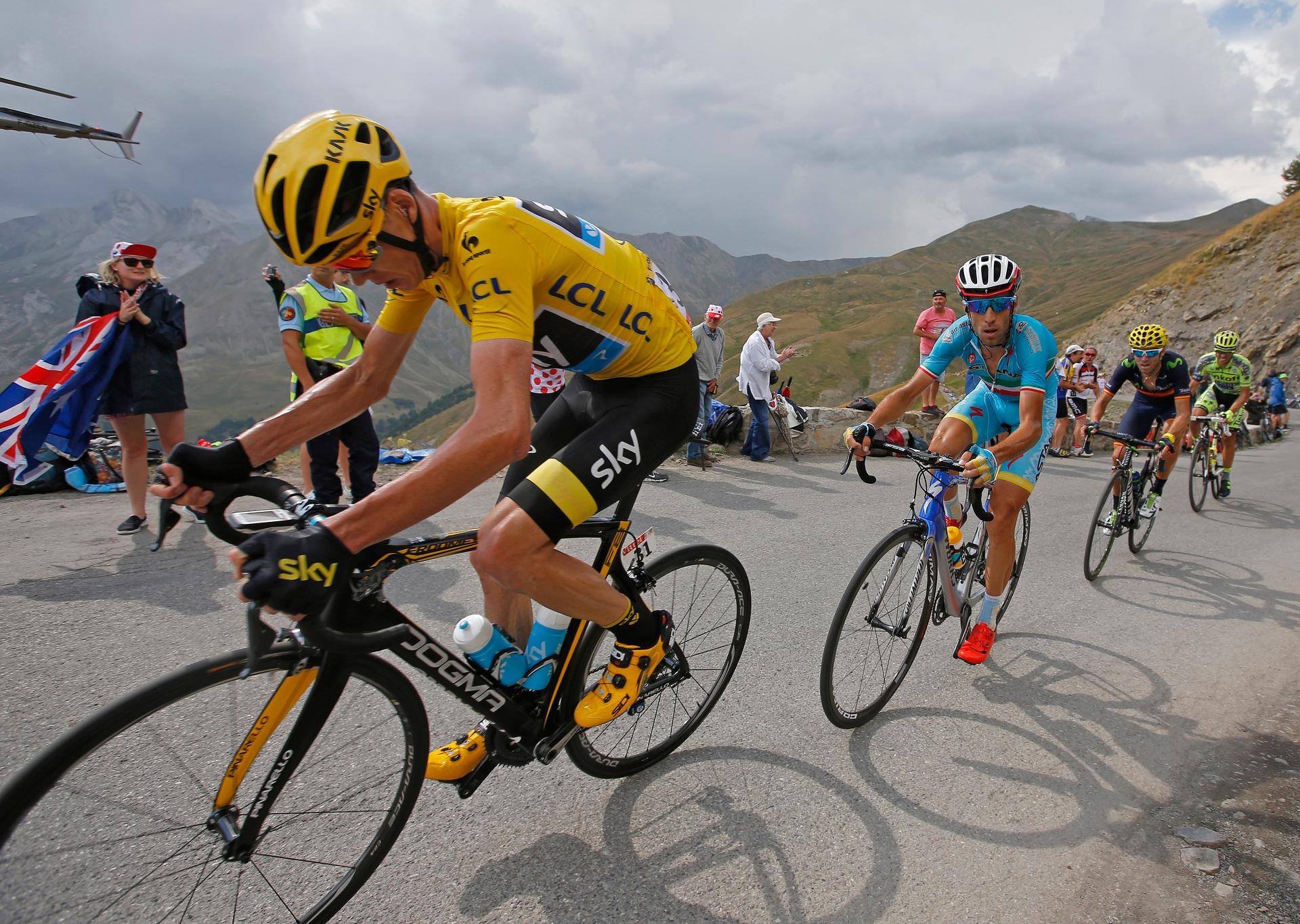Team Sky rider Chris Froome of Britain, wearing the race leader's yellow jersey, climbs the Allos pass followed by Astana rider Vincenzo Nibali of Italy during the 161-km (100-mile) 17th stage of the 102nd Tour de France from Digne-les-Bains to Pra Loup in the French Alps July 22, 2015.
The Tour de France continued its grueling pace today with a tough and dangerous Stage 17 through the French Alps.
This year, British rider Chris Froome of Team Sky is dominating the race. But not without controversy. Some fans are accusing Froome of doping and not just his body — his bike, too. One fan even threw a cup of urine at him during a stage.
Most everyone says Froome is a nice guy. But cycling aficionados may be holding something else against him.
"He's very bland, and cycling fans like their heroes a bit larger than life," says John Stevenson, reporter at the cycling website Road.CC. "Froome is a kind of a mechanical athlete. He knows exactly how to get the most of his body in any situation."
Froome just hammers on the pedal, staring down at a power meter that gives him real time statistics about his performance. It's brutally effective, but ugly.
Some fans don't much like his team either. Team Sky is seen as a cold behemoth. Everything is calculated and controlled. The team kits are black. And the team bus is referred to as the "Death Star."
It's really no different than any other tour. Leaders like Froome must constantly face doping allegations. Decades of doping have brought us to this point. But now it's not just about the body. It's about the bike. There are murmurs about cyclists putting a tiny motor, known as a Gruber Assist, inside the tubes of their bikes.
Such accusations are old news to many. They started years ago after Fabian Cancellara rode away with the Paris-Roubaix.
oembed://https%3A//www.youtube.com/watch%3Fv%3D8Nd13ARuvVE
Cancellara says such accusations are ridiculous. And the talk faded to the background until the 2014 Vuelta. That's when rider Ryder Hesjedal took a spill and his bike kept spinning.
oembed://https%3A//www.youtube.com/watch%3Fv%3DideiS-6gBAc
The 11-second clip is the Zapruder film of cycling.
Steveson thinks that the conspiracy theories are just that. "It's theoretically possible that you could conceal one of these things somewhere in a bicycle," he says. "But none has ever been found. Now, bikes get scrutinized at the beginning and ends of races. They get weighed. They get checked over by commissaires. And if somebody were using one of these motors, I feel fairly confident it would have been found by now."
Stevenson points out it's still easier to dope your body. The BBC proved just how easy it is to pass tests through micro-doping in a recent documentary.
But should all the doping talk, body and bike, ruin your tour?
"Not at all," says Stevenson. "I think, like a lot of people, I watch the Tour de France for the amazing French scenery as much as for the racing."
